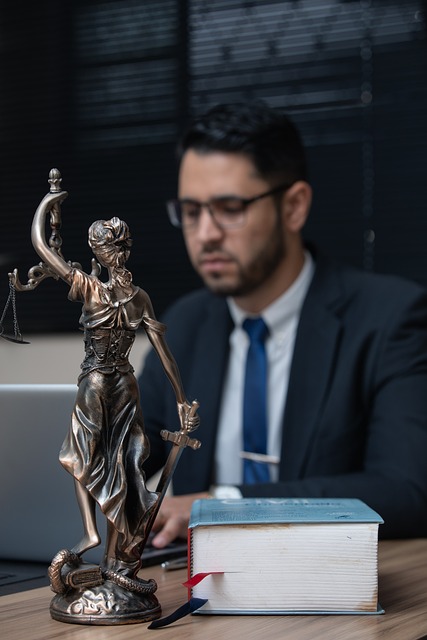Criminal Defense Attorneys are guardians of justice, upholding the Importance of Due Process in Court. They navigate complex legal landscapes, advocating for clients' rights and ensuring fairness. From corporate to individual cases, these attorneys protect liberties, challenge evidence, and safeguard against constitutional violations. Their strategic defenses and meticulous preparation ensure due process, potentially leading to the dismissal of all charges. Effective criminal defense maintains justice system integrity, preventing wrongful convictions and protecting public trust.
Criminal Defense Attorneys play a pivotal role in ensuring fairness within the legal system. Their primary responsibility is to safeguard the rights of accused individuals, providing them with the knowledge and expertise needed to navigate complex courtroom proceedings. This article delves into the crucial functions of these attorneys, highlighting their significance in upholding the fundamental principle of due process. By exploring their duties, challenges, and impact on justice, we gain insights into why effective criminal defense is essential for a fair court system.
- Understanding Criminal Defense Attorneys: Their Role and Responsibilities
- The Foundation of Due Process: Ensuring Fairness in the Legal System
- How Criminal Defense Attorneys Safeguard Due Process Rights
- Common Challenges Faced by Defense Attorneys in Courtroom Proceedings
- The Impact of Effective Criminal Defense on the Justice System
Understanding Criminal Defense Attorneys: Their Role and Responsibilities

Criminal Defense Attorneys play a pivotal role in ensuring justice is served within the legal system. Their primary responsibility is to protect the rights of individuals facing criminal charges, focusing on both the legal and moral aspects of their cases. These attorneys are adept at navigating complex laws and regulations, providing crucial guidance to their clients throughout the court process.
The essence of their work lies in upholding the importance of due process, a fundamental concept ensuring fairness in judicial proceedings. They advocate for their corporate and individual clients, challenging evidence and testimonies to protect their interests. Whether handling high-stakes cases or offering support to those from philanthropic and political communities, these attorneys are bound by their professional ethics to defend their clients’ liberties while adhering to the law.
The Foundation of Due Process: Ensuring Fairness in the Legal System

The foundation of due process is a cornerstone ensuring fairness within the legal system. It guarantees that every individual accused of a crime receives a thorough and impartial examination, upholding the principles of justice. This includes the right to be heard, access to legal representation, and protection from arbitrary or unjust actions. Criminal defense attorneys play a vital role in navigating this process, ensuring clients’ rights are respected and that they receive a fair trial.
An unprecedented track record of successful cases highlights the effectiveness of skilled legal counsel. Through meticulous preparation, strategic arguments, and a deep understanding of procedural laws, these attorneys can secure jury trials where evidence is rigorously scrutinized. This ensures that any decision rendered is based on merits, leading to the complete dismissal of all charges in some instances—a testament to the importance of due process in court.
How Criminal Defense Attorneys Safeguard Due Process Rights

Criminal Defense Attorneys play a pivotal role in safeguarding the fundamental right to due process for all individuals within the legal system. Their primary responsibility is to ensure that every client, whether from the general criminal defense realm or involved in white-collar crimes, receives a fair and impartial trial. These attorneys are well-versed in navigating complex legal procedures, ensuring that their clients’ rights are respected and protected at every stage of the court process.
By meticulously examining evidence, challenging prosecution claims, and presenting compelling defenses, Criminal Defense Attorneys uphold the integrity of the judicial process. They advocate for their clients’ interests, safeguard against unlawful search and seizure, protect against self-incrimination, and ensure that any confession is voluntary. This meticulous approach extends to corporate and individual clients alike, ensuring that their unique legal needs are met with the utmost professionalism and expertise.
Common Challenges Faced by Defense Attorneys in Courtroom Proceedings

Criminal defense attorneys often face significant challenges when representing clients in courtroom proceedings. One of the most critical aspects is navigating the intricate rules and procedures that govern due process in court. Ensuring a fair trial, where every step is followed precisely, is essential to protect the rights of the accused. Failure to adhere to these processes can lead to serious consequences, including a complete dismissal of all charges, as the foundation of a just outcome hinges on these fundamental principles.
Another challenge lies in presenting a compelling defense strategy. Defense attorneys must gather and present evidence, counterprove the prosecution’s claims, and argue for their client’s innocence or reduced charges. In high-stakes cases, where winning challenging defense verdicts is paramount, attorneys need to be adept at handling intense scrutiny, managing complex legal arguments, and remaining calm under pressure. The stakes are high, and the outcome can significantly impact not just the client’s freedom but also their future prospects.
The Impact of Effective Criminal Defense on the Justice System

Effective criminal defense plays a pivotal role in upholding the integrity of the justice system. When defendants are provided with robust and challenging defenses, it ensures that the principles of due process are respected and upheld. This is crucial as it guarantees a fair trial, allowing both parties to present their cases fully and ensuring the accuracy of verdicts. By employing strategic legal arguments, evidence analysis, and skilled cross-examination, criminal defense attorneys can expose weaknesses in the prosecution’s case, ultimately leading to more just outcomes.
The impact extends beyond individual cases; it shapes public trust in the system as a whole. Winning challenging defense verdicts across the country has demonstrated that a robust defense is a cornerstone of a healthy democracy. In high-stakes cases, where the consequences are severe, effective defense counsel can prevent wrongful convictions and ensure that justice is not only served but also perceived as such by the public. This, in turn, strengthens public confidence in the legal process, fostering a society where everyone, regardless of circumstance, is afforded the protection of due process.
In conclusion, criminal defense attorneys play a pivotal role in upholding the importance of due process in court. By ensuring fairness and safeguarding the rights of the accused, they contribute significantly to the justice system’s integrity. Navigating the complexities of courtroom proceedings, these professionals challenge evidence, expose inconsistencies, and protect against arbitrary decisions. Recognizing their challenges and appreciating their impact, we can better understand and support the vital work they do in protecting individual liberties within our legal framework.






